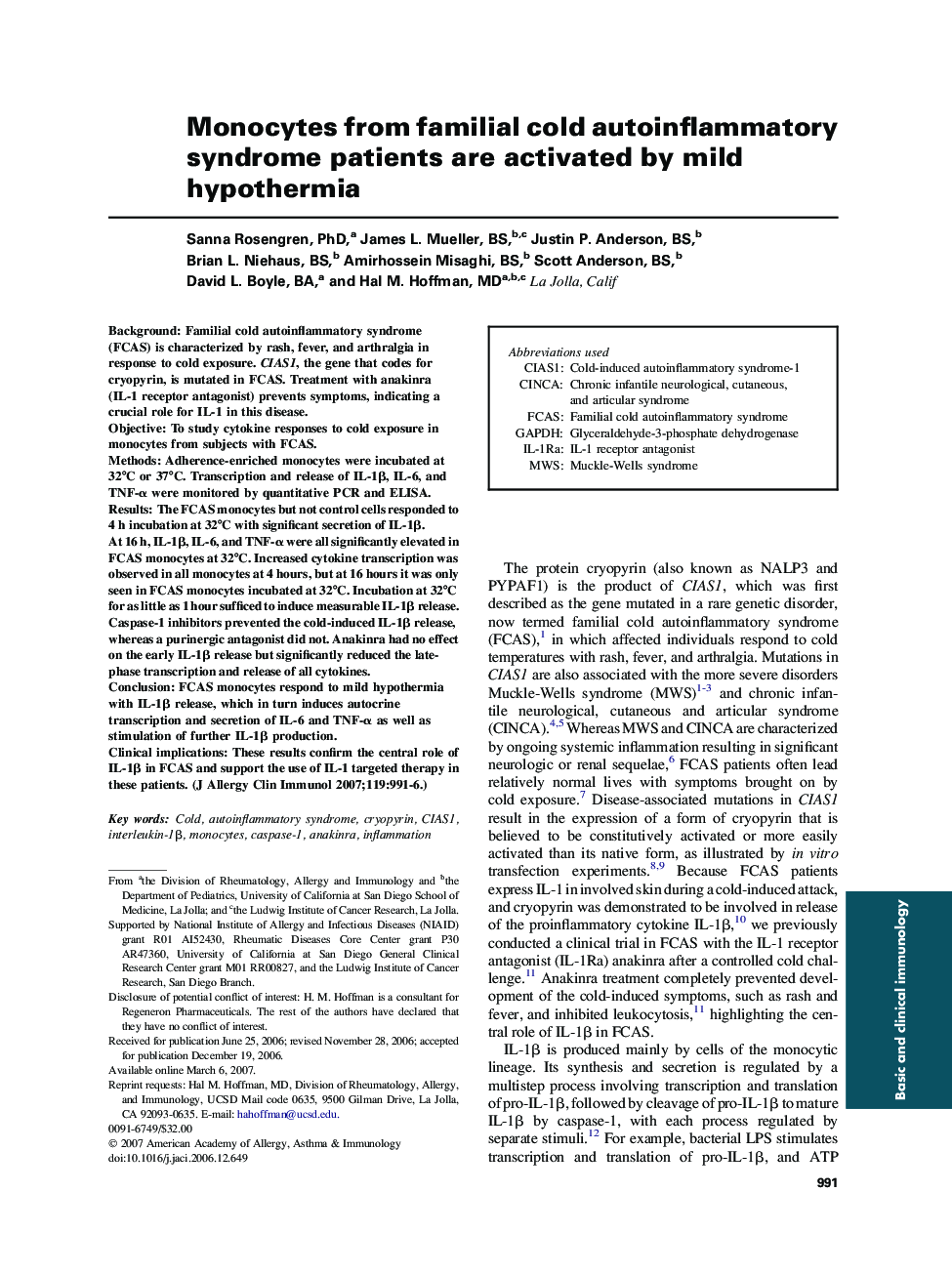| Article ID | Journal | Published Year | Pages | File Type |
|---|---|---|---|---|
| 3202043 | Journal of Allergy and Clinical Immunology | 2007 | 6 Pages |
BackgroundFamilial cold autoinflammatory syndrome (FCAS) is characterized by rash, fever, and arthralgia in response to cold exposure. CIAS1, the gene that codes for cryopyrin, is mutated in FCAS. Treatment with anakinra (IL-1 receptor antagonist) prevents symptoms, indicating a crucial role for IL-1 in this disease.ObjectiveTo study cytokine responses to cold exposure in monocytes from subjects with FCAS.MethodsAdherence-enriched monocytes were incubated at 32°C or 37°C. Transcription and release of IL-1β, IL-6, and TNF-α were monitored by quantitative PCR and ELISA.ResultsThe FCAS monocytes but not control cells responded to 4 h incubation at 32°C with significant secretion of IL-1β. At 16 h, IL-1β, IL-6, and TNF-α were all significantly elevated in FCAS monocytes at 32°C. Increased cytokine transcription was observed in all monocytes at 4 hours, but at 16 hours it was only seen in FCAS monocytes incubated at 32°C. Incubation at 32°C for as little as 1 hour sufficed to induce measurable IL-1β release. Caspase-1 inhibitors prevented the cold-induced IL-1β release, whereas a purinergic antagonist did not. Anakinra had no effect on the early IL-1β release but significantly reduced the late-phase transcription and release of all cytokines.ConclusionFCAS monocytes respond to mild hypothermia with IL-1β release, which in turn induces autocrine transcription and secretion of IL-6 and TNF-α as well as stimulation of further IL-1β production.Clinical implicationsThese results confirm the central role of IL-1β in FCAS and support the use of IL-1 targeted therapy in these patients.
